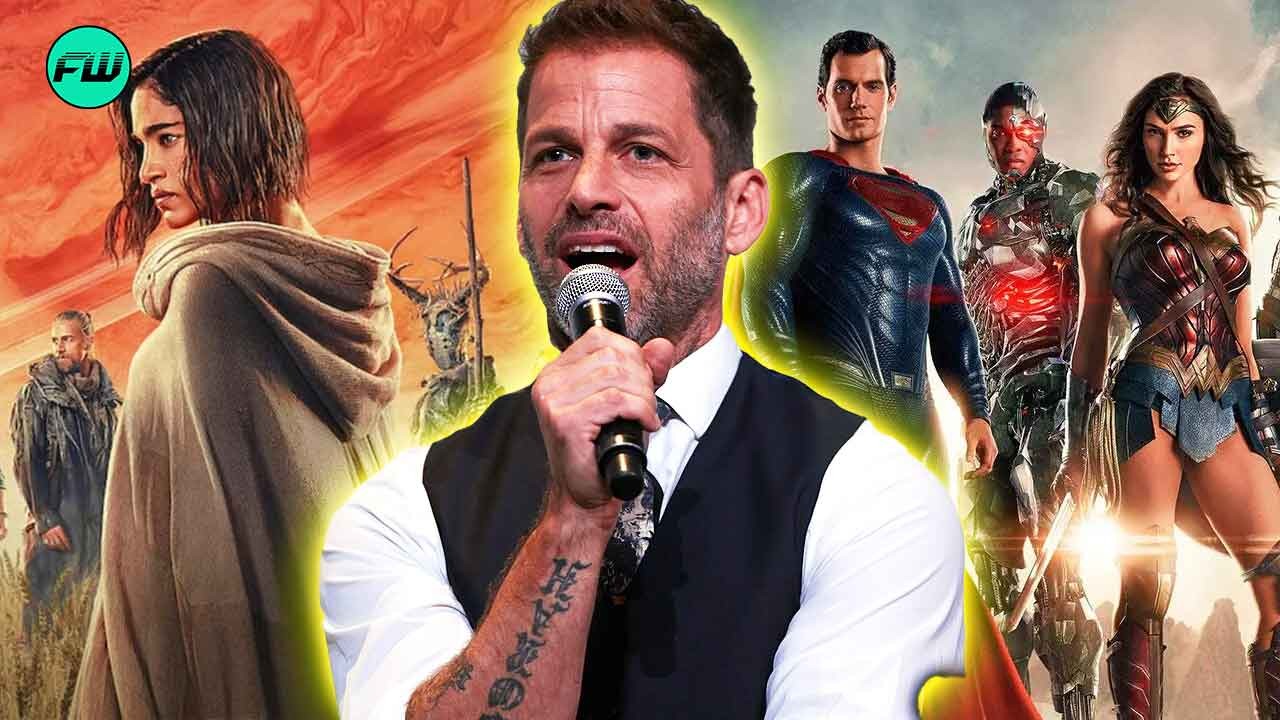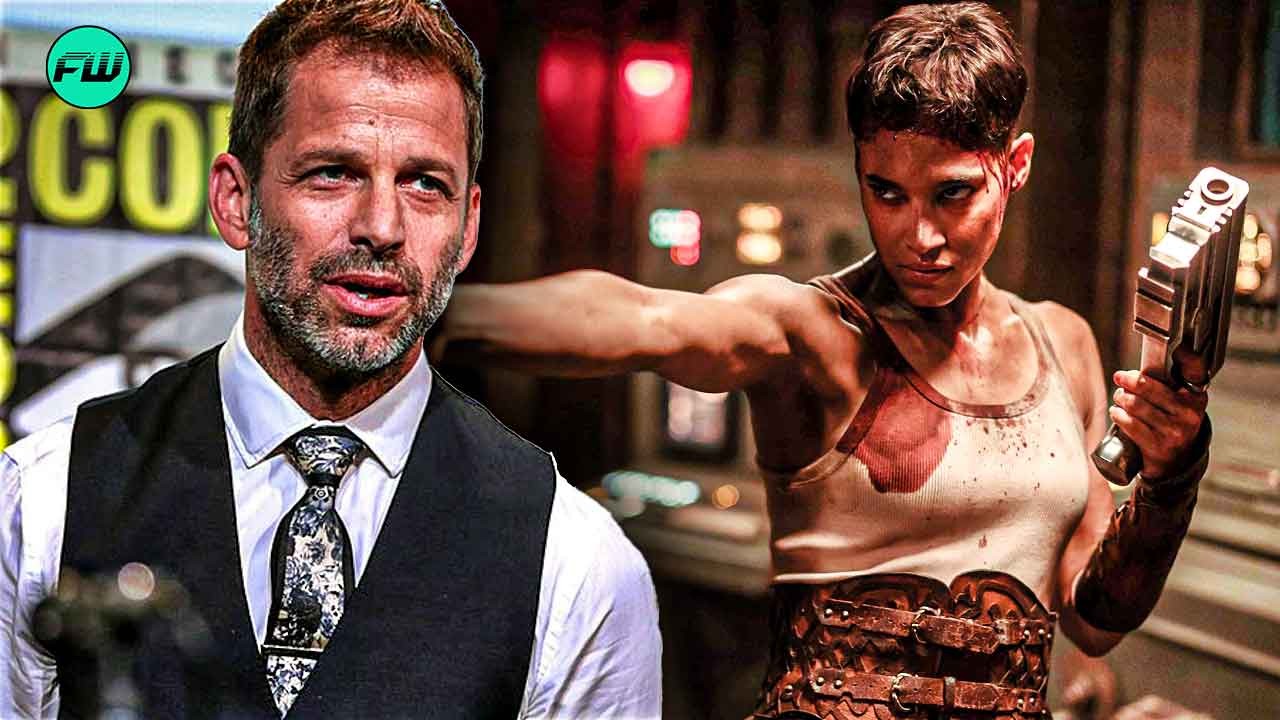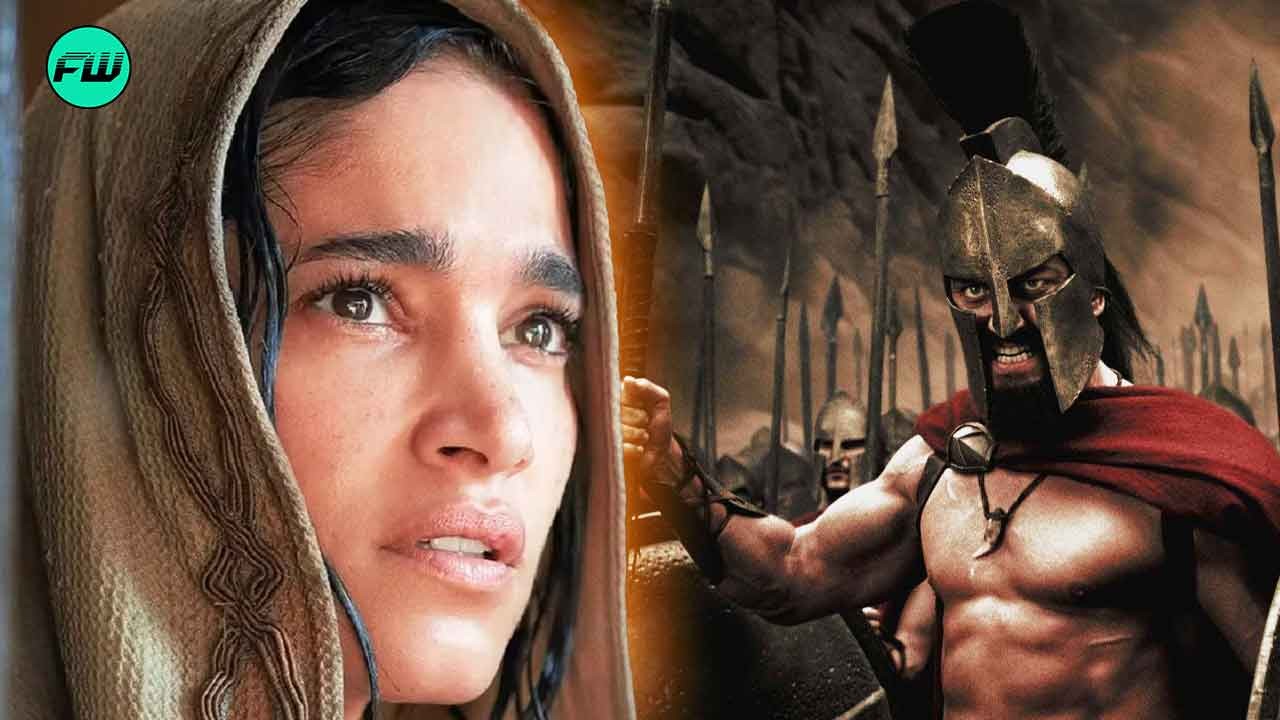The world that Zack Snyder comes from is stuffed with lore-driven drama, mature sensibilities, and dark imagination. His work reflects those traits in abundance despite there being enough opportunities to go so completely campy in his artistic style that it would threaten even David Cronenberg’s reputation in the field. But Snyder doesn’t take the bait. He would rather be the master of dramatic storytelling that presents itself as an epic Greek tragedy than serve up a generic film that gets lost among the stampede of a thousand other films coming off of Hollywood’s factory lineup.
The Myth of Zack Snyder Wavers With Rebel Moon
The shared shock and trauma from the 5-year-long incident evolved the director’s image to a godlike figure to his community of undaunted, unbiased, and unwavering followers – a trait that has often earned them the nickname “Snyder cultists” by the opposition in online forums. But the aftermath of Rebel Moon saw even such loyal fans limiting their quota of praise reserved for the director. The Netflix film, which was supposed to be Zack Snyder’s magnum opus, the masterpiece of the decade, a film unchecked by studio interference or censored by MPAA or slashed to reduce runtime, instead turned out to be a dud.
Was this film then a one-off flop by Snyder who, for the record, has never failed to deliver cult-classic hits (no matter how divisive)? Or, was Rebel Moon only the latest in a long line of films that showed off all the traits that combine to make a pure, unadulterated Zack Snyder classic?
Zack Snyder’s Biggest Flaw Starts to Affect His Storytelling
Zack Snyder’s films have consistently delivered on a grand scale – no matter the genre or tone of storytelling. Be it comic adaptations, historical fiction, a zombie apocalypse film, or Star Wars-inspired jargon, each of Snyder’s movies has been a fully formed visionary tale of epic character arcs filled with conflict, melodrama, and war.
The primary reason why Snyder’s range shifts from his 2006 historical epic to the 2023 Netflix space opera is his increasing dependency on dramatic effects to add depth to his story rather than a focus on the story itself. When it comes to cinematography, Zack Snyder has always been a fan of long soul-cutting stares and dramatic silhouettes against a larger-than-life scenic backdrop. But such thematics never hampered his storytelling because they were used judiciously and with restraint.
However, with time, the director has loosened up his reins. His films are now populated, haunted, and plagued by melodramatic slow-motion action sequences. Starting from the death of Superman to, quite frankly, every frame in Rebel Moon – Zack Snyder forgot to use his favorite tropes sparingly and let loose in the absence of studio interference. As a result, the entire film suffers from an incredulously slow-paced narrative and the audience groans and suffers while the protagonist takes out entire squadrons of enemies in extreme slow motion.
While the director has only begun to overindulge in such habits, his flaws can be traced back even to the earliest films. Melodrama and Zack Snyder have never been strangers in this lifetime but it has remained an overbearing and constant presence casting a shadow over every one of his stories. Although Snyder’s aesthetic vision may suffer if one asks him to dial down the dramatic seriousness in his films, it may do the director some good to omit the longing stares, slow-motion action, and cinematic silhouettes in favor of character-building and high-stake storytelling.
Who knows – maybe he could even narrate the entire story of Rebel Moon within one film if he could just pick up the pace a little?


![300 [Credit: Warner Bros.]](https://fwmedia.fandomwire.com/wp-content/uploads/2024/04/20091106/300-Credit-Warner-Bros.jpg)
![Zack Snyder's Justice League [Credit: Warner Bros. Pictures]](https://fwmedia.fandomwire.com/wp-content/uploads/2024/04/20090424/ZSJL-%E2%80%93-a-vision-of-the-Knightmare-timeline-scaled.jpg)

![Rebel Moon [Credit: Netflix]](https://fwmedia.fandomwire.com/wp-content/uploads/2024/04/20090528/Rebel-Moon-brings-out-the-macabre-vision-of-Zack-Snyder.jpeg)
